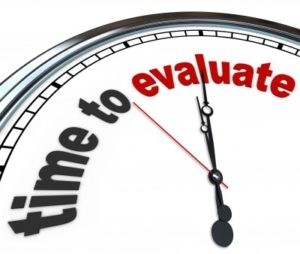 Journalist Samuel Rubenfeld posted his personal 2011 year in review on Tumblr. Someone with the username “rofgile” posted his review of his 2011 investment picks on The Motley Fool forum. Bonnie Beckham posted in her blog for Boston.com some fun and interesting questions that her family answers as their year-end review each December. Yahoo! has a way to review your personal year of Facebook posts alongside events of the year.
Journalist Samuel Rubenfeld posted his personal 2011 year in review on Tumblr. Someone with the username “rofgile” posted his review of his 2011 investment picks on The Motley Fool forum. Bonnie Beckham posted in her blog for Boston.com some fun and interesting questions that her family answers as their year-end review each December. Yahoo! has a way to review your personal year of Facebook posts alongside events of the year.
There are many different focuses and many different ways to take stock of the old year as we launch the new year. The groundbreaking civil rights attorney, law school professor and first African-American federal judge, William Hastie reminded us why we need to do a review now and then. He said, “History informs us of past mistakes from which we can learn without repeating them. It also inspires us and gives confidence and hope bred of victories already won.”
Here are some of my suggestions about how to engage in a “Lessons Learned” process before making new plans, based on my years of experience in helping clients through such an analysis.
1. Give yourself full credit.
First, take a look at what was successful. Allow yourself all due credit for your accomplishments, breakthroughs and wins, no matter their size. Don’t just look for cases you won or big deals closed. We tend to gloss over our small victories, even when they took real effort or perseverance to achieve. We rarely let ourselves live down a shortfall, however, so give equal time to your successes. If you finally got those files taken care of, or your office organized, include that accomplishment on your list. If you gained back 5 of the 10 pounds you lost last year, acknowledge yourself for keeping off 5 pounds.
2. Celebrate and replicate your successes.
Take some time to fully bask in and honor that list of wins. Feel good about them. Own them. Then try to figure out why you were successful. Did you do anything differently from before? If you can identify what worked, you can call on that ability again. Do you notice any patterns or commonality among your wins? Perhaps you can generalize the lesson and apply it in new directions.
3. Dissect your disappointments.
After you have acknowledged yourself, take a little time to look at what didn’t go as well as you had hoped. List out your losses, disappointments and breakdowns. Honestly identify your part in any disappointing results. Don’t linger in blame or regret, however. Realize these situations are great feedback and an indication of a need for course correction. By looking for patterns, you may be able to isolate the common factors that cause you problems. Then you can set out to find remedies.
4. Now, you’re ready to plan.
Once you are armed with the self-awareness of where you shine and where you create your own setbacks, you are ready to set a fresh course for the new year. It’s a clean slate, unwritten upon. Don’t drag your old baggage into the new year, and don’t just wander into it aimlessly. Choose new goals and set intentions. Set them mindfully, knowing that you are not burdened by your past, but enlightened by it.
If you want more guidance in setting goals for next year that you might actually follow through on, you can download our “Year End Evaluation and Goal Setting form for free at:
http://www.lawyer-coach.com/documents/year_end_evaluation.pdf
Adapted from a post by the author originally published in Solo Practice University™ Blog on 12/15/11. © 2011 Debra L. Bruce.
